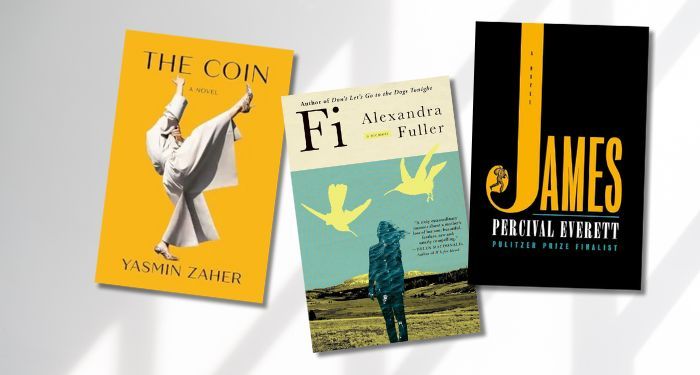By Albe Harlow.

When the seals hot-trot, the crabs walk. When the sand mites flicker, the sunfish prima-donnas beyond the breakers. The old-hand sandpipers strike at the backwash strandhoppers, have been since daybreak low. When apexers rove under the wind-white, five fingers out, somewhere, a patrol boat wakes a line of skiffs. The mollusks have already shelled the berm, on account of the gulls. Somewhere in the disappearing tidepool, the hippofish dawdle. At this moment, the shiners bolt under dapples of screensaver-blue. The green flies trifle at the ankles, beneath a canopy of hatred. The inland crane stalks while a fresh striper washes up rolling. The ocean claws away at the sand while the contingent hinterland smiles with fire. But the gulls always reap. The gulls, the gulls, the gulls reap. They reap at dawn and they reap at dusk. From morning till afternoon, they reap. Reap, reap, reap, the gulls—they reap.
No one comprehends their evenings. Some have said: full of the sorrow of the glutton. Others: engage in ritual flocking. Still others: metamorphose into chicks’ down and flotsam near hurricane avulsion, roll along the foam line, where the crabs walk. The consensus among ecologists who watch the Fundy tuna numbers is that the gulls do not cease in their reaping—that is, they say, even at night the gulls reap. This would mean that gulls reap 24/7, that gulls do not dream and that they do not copulate, let alone carry, bear and nest offspring, which—as the president of the Sandwich Gull-watching Club does not cease to instruct—is impossible. She offers all this, all the way from the upper bayside.
Mere civilians who nurture a perennial interest in beach picnics—picnics comprised, in the main, of potato chips—have suggested that gulls reap and copulate simultaneously or, at least, at the same time. Such same mere civilians have said that gulls do not observe human affairs. In one voice, these fine people have said that gulls do not heed the presenting vectors of Bergson or the calendrical machinations of the World Bank. Passing the potato chips, they have remarked that most of the gulls’ world is flying, flapping, meeting, greeting, fleeing, sharking, marking, larking, cawing, hissing, darting, warding, standing, hawking, rustling, regurgitating, bobbing and floating. All of this, such mere civilians feel compelled to add, may be included under the predominating gesture of the reap.
Reaping is of course dangerous to small children and all serious-shouldered adults who are not all there. Everyone must remain on the watch. Lunch should not be taken lightly. Kitchner Lesly, 5’11”, deputy editor of the Potato Chip Committee’s Gull Series, watches the fresh dead striper, washed up, rolling. The prescience of the gulls is such that they were already reaping this bloated treasure before Kitchner Lesly had his morning cup of forest-rich dark roast. This would mean the gulls knew the fish was dead meat before it flopped fresh up under the swash. Kitchner Lesly understands that, by extension, this would mean the gulls were reaping at the height of night, waiting for the ocean to chuck up its sweet dead. Reap, reap, reap, the gulls—they reap. Kitchner Lesly watches the gulls reap the striper, mining the slippery sequins for pearlescent death. The seals have stopped hot-trotting and begun debauching. The waves gulp rocks back under, plus feathers, saltwood, a sun hat. The pink jellies pulsate under reticulated foam. Kitchner Lesly toes around these claustrations of turgidity, knowing all too well.
Meanwhile, the gulls continue reaping. It is Swan Lake run amuck at the striper’s eye socket. They dance around their portal, flapping, hawking, larking, darting. Some ward over the gills. Others orbit at the perimeter, regurgitating. Some meet further off, standing and cawing. All are reaping. One, white with hunger, beaks the air near Kitchner Lesly’s breakfast sandwich. Woah! He folds it under the spanking-yellow foreground of his windbreaker. When the gulls stop reaping, that is when the world ends, thought Kitchner Lesly. We have Time and the gulls have the Continuum of the Insatiable Reaping, whereby intervals of spacetime are bridged by episodes of hunger and sadism—peaks and troughs and furrows, waves of endless reaping. They are reapers thrown into reaping with a disposition to reap. There is no perspectival position in spacetime apart from reaping and the reap. Furthermore, reaping and the reap are never reified into reapage; such would infer a pertaining-to which estranges reaping and the reap from what the gulls are doing—which is impossible. Just like marriage, thought Kitchner Lesly. The ream of green sea paper under Kitchner Lesly’s clamming shoes stretched all the way, horn to horn. There was nothing for the gulls in that curtain of dubious smells any more, no place for it in the worldview of reapers any more—besides, of course, its potential for seaborne renascence. Kitchner Lesly, of the old lobe-finned fish clade, closes his eyes, taking a whiff. He center-stages himself. Halfway is not a place to have a meeting, he feels.
Wave upon wave, a Devonian orchestra plays. Can humans sleep while standing? The seals dovetail down, just as the baby crabs dry up. The sunfish prima-donnas beyond the breakers. The old-hand sandpipers pinpoint the strandhoppers in the backwash, have been doing this since daybreak low. When apexers cruise under the wind-white, some four-fingers out, north if from Cahoon Hollow, a patrol boat has woken a line of skiffs. The mollusks have already shelled the berm, with the president of the Sandwich Gull-watching Club, Runa Demir, keeping account. Somewhere in the disappearing tidepool, the tittlefish dally. At this moment, the shiners boogie under dapples of watermelon margarita-red. Kitchner Lesly has just gutted a barely-legal striper, 28.5 inches. The green flies trifle above the knees, beneath a canopy of hatred. The inland crane stalks as Coca-Cola refuse rolls up from under a wave. The ocean claws at the sand while the contingent hinterland smiles with fire. Ah, but the watchers always reap. The watchers, the watchers, the watchers reap. They reap at dusk and they reap at dawn. From violet morning till candle light, these watchers reap. Reap, reap, reap, the watchers—they reap.
Runa Demir is their leader. Runa is a reaper. She reaps what gulls reap—on the beach, she reaps. She climbs summer-high lifeguard chairs to reap. She reaps from dunes and swims out to meet seals, reaping all the while. She reaps at the rock line, reaps at the pebble streak, reaps at the shell trail, reaps at the rank garden path of green sea paper, reaps at the mysterious Rayonnism of ruminant hay. She reaps above the transcendentalism of shoreline, at the hurricane burp line, above the rhetoric of the dunes, into the ethereal equivocation of grasses, where the cenobitic crabs take their bread. She reaps where the fires smile upon the contingent hinterland. All this, coming all the way from the upper bayside.
Kitchner Lesly has a wedding to attend in the wasteland. He will marinade the fish in the fullness of time. He sees Runa Demir with her harpoon, her burlap sack. She walks leggy upon the sandbar, on the other side of the coastal cell, mulling through the flocculation patterns. Kitchner Lesly has the sudden spellbound urge to stop smoking cigarettes—to never have another cigarette again. Citrus, shallot, oil, olives, capers, sale marino, thyme, white pepper. Hoc est ambrosia. Plus Chablis—or salty Chenin. Puis-je vous embrasser? Candlelight in her eyes, shrinking in the pupils wide! Kitchner Lesly snuffs the cigarette and fingers it into his back pocket. Three children—red, blue, yellow—tumble across the grey blade of a sandbar near the horn. They are locomotion, contrast, what’s coming, thought Kitchner Lesly, briefly satisfied. From a mile off, doom and death look like grace evanescent. The gulls, in their para-aquatic mania, continue reaping. All this flappy salty fog of cawing could kill.
Runa Demir is at the berm, making her way over through the shelling. The angle of her approach suggests an extramarital affair: obtuse, possibly asymptotic. It would seem the president of the Sandwich Gull-watching Club wants to give Kitchner Lesly some paces to think about things, think about how things have been going. The sky is not even Chartreuse yet and her reap sack is already brimming. All the way from the upper bayside. Just to talk herself up, she hops on a call, probably with some merry-andrew at Berkshire Hathaway. Her harpoon becomes a cane. Sand whips up behind her heels. The flashy phone disappears into her shorts. We all cannot have everything we want on demand, she thinks, edging up through the dread colonies of reaping gulls.
She stands leggy beside Kitchner Lesly.
“Look at this,” she says, eyeing what gleams and crinkles in her sack.
Kitchner Lesly looks out to sea and grunts.
“Has it ever occurred to you that we reap what we sow?” sings three-legged Runa Demir.
“I have heard it said before, as a matter of fact,” says Kitchner Lesly.
“Has it ever occurred to you,” she says, grazing the backs of her fingers against Kitchner Lesly’s arm, “that the legal arrangements we have made do not preclude occasional nostalgic lapses?”
“This has occurred to me.”
“You sphynxist, look at me!” she caws.
Kitchner Lesly passes his eyes over her shoulder to the billowing white hills mounting over the shallowing dunes.
“Sometimes it feels like everything is happening at once,” says Runa Demir.
“Suppose you mean the fires,” says the sphynxist, Kitchner Lesly.
“They look like white elephants.”
“I’ve never seen one.”
“No, you wouldn’t have,” she says, reminiscently.
Removing her hand from Kitchner Lesly’s arm, she strikes it out between them, flat against the wind.
“My name is Runa Demir, president of the Sandwich Gull-watching Club. It’s a pleasure.”
“A pleasure,” Kitchner Lesly says, shaking her hand. “Truly,” he adds, finally looking at her dead-on.
The woman rolls her eyes. The earth issues its perfumes. The pieces and parts rollick out in the maelstrom. When the old excesses come together, the baby plastics work apart. The barrel buds and goofs, prima-donnaing beyond the high rollers. The fresh-footed sandpipers trot over the wager wrappers in the sloosh-back, have been very much so since breakday now. When apexers turn tumid under the eye-white, some numb-fingers out, horn to horn, a patrol boat cooks hull-up near the others, a carton of cracked eggshells near the big launch. Always dicing, the mollusks token the fray of understanding between water, earth, air, fire, the president of the Sandwich Gull-watching Club having lost account, somewhere in the bed of Kitchner Lesly’s 4×4. The tidepools tilefish through tildes of foam at the lips of the embayment. At this very place, right here, blood fingers hot down and through to the finish. The mean greens gad around the navel, over a ballooning well of collective concern. The inland crane turns to gasoline. The oceans yellow-tooth at the deserts. Blast! And with the fires no longer given to sport, the gulls entombed like aluminum-rich pharaohs, the onlookers always reap. Oh, do they ever. The onlookers, the onlookers, the onlookers reap. They reap at dusk and they reap at dawn. From desperate morning to dying light, these showgoers reap. Reap, reap, reap, the readers—they reap.

ABOUT THE AUTHOR
Albe Harlow’s stories, essays, and poems have appeared in the The Hopkins Review, Cleveland Review of Books, Cambridge Literary Review, 3:AM Magazine, Bellingham Review, Princeton University’s Inventory, Contrary Magazine, RHINO, La Piccioletta Barca, and elsewhere. Another story is slated for publication within Gavialidae in 2025. His project relating to the auditory legacy of Jacques Derrida, publicized by Cornell University Library, is ongoing. He is a 2019 graduate of Columbia University’s MFA Writing Program and was a longtime reader at Harvard Review. He attended the School of Criticism and Theory at Cornell University for the 2021 Summer Session. He is querying a novel while writing a new one from his home in New York City.











 Bengali (Bangladesh) ·
Bengali (Bangladesh) ·  English (United States) ·
English (United States) ·